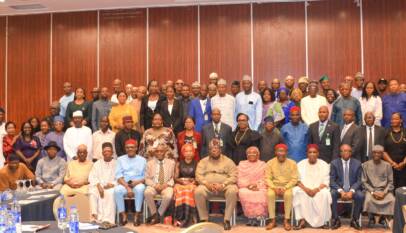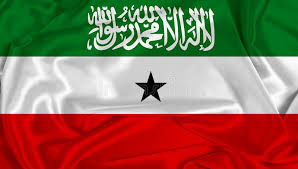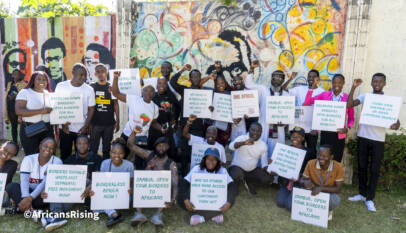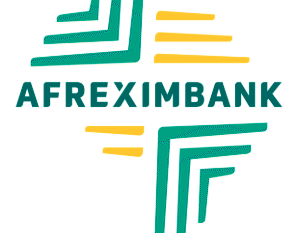INTERVIEW: “It is time for women to raise their voices, stand for the girl-child.”
Ahead of the 2018 African Writers Conference being organized by African Writers Development Trust (AWDT) under the theme: Reimagining African Literature: New Voices, New Narratives in the Fight for the Girl Child, Nahida Esmail, an award-winning author and keynote speaker at the forthcoming event speaks on the role of women and writers in Africa’s development.
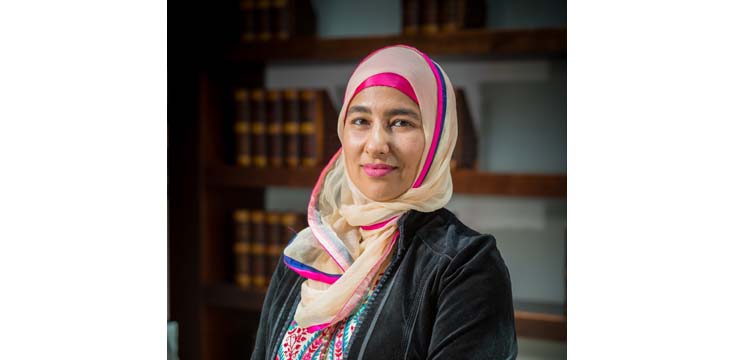
Tell us about the African Writers Development Trust (AWDT).
African Writers Development Trust (AWDT) is a non-governmental organization that promotes reading culture, encourages cross-cultural learning, sharing of creative ideas and thoughts that would impart the society positively. The journey of AWDT began in 2016 as Writers’ Space, a subsidiary of Acacia Publishers Limited, a company also founded and registered by Anthony Onugba from Nigeria.
Anthony’s intention was to help struggling authors have a global reach by providing them with a web space that serves as a platform for the sharing and promotion of their writings. That was how the name Writers’ Space came about. At first, the scope was limited to Nigeria, offering comprehensive writer’s solution for writers – editing, proofreading, eBook publishing, amongst others. Later on, Writers’ Space evolved to become a writer services company incorporating a writer’s forum which attracted several writers from across the African continent.
In December 2016, Writers’ Space evolved into a magazine whose maiden issue was released on January 7, 2017. Since then, subsequent editions are being released on the first of every month. In June 2017, the magazine was renamed Writers Space Africa (WSA) and refocused more on the empowerment of African writers and exposing them to global audience.
As WSA grew and became popular, we saw the need to launch what an annual writers’ conference, by and for African writers. After several rejection of the name Writers Space Africa for registration, the name African Writers Development Trust (AWDT) was incorporated. Writers Space Africa then became divorced from Acacia and got retained as a publication of AWDT.
African Writers Development Trust seeks to promote education, create educational opportunities and literacy programs for writers, students and other educationally less privileged persons both locally and internationally for the benefit of humanity.
What role can African writers play in the development of the continent?
The role of education and writers is very significant in our society’s development process – writing is of utmost importance. In the past, oral traditions preserved our culture, heritage and traditions. Nowadays, writing has taken its place, communicating the important truths and narratives from an African perspective. It was once said ‘If you want to hide information from an African put it in a book.’
This has changed with writers on the rise. For example, Chinua Achebe’s classic ‘Things Fall apart’ breaks the stereotypical European narrative of the native Africans. When the white man looks at the Igbo customs without understanding or speaking the language, he is forced to see it through the Western perspective and therefore considers it bad. Chimamanda Adichie also promotes culture and a sense of belonging so people can embrace their African-ness. We have to be in control of our narratives.
The African Writers Conference is coming up on the 1st of December, 2018, in Abuja, Nigeria. Its theme is focused on the girl-child, what do you aim to achieve with the conference?
One of the objectives for the conference is to provide a gateway for continuous engagement and cross-interaction on the issue of the girl child. So, we aim to promote a cross-cultural discussion that will lead to the development of literature and strategies for the development of African literary space.
You are a champion for women rights, how can writing empower African women?
Writing empowers in general. The saying, ‘the pen is mightier than the sword’ gives women the power to say what they want from their perspective. As women, we should take charge of our narratives and not let the men or women from other continents take over and talk about our experiences. When someone looks from the outside world into ours, they can misinterpret our beliefs and cultures as primitive because they look at them through their lens. Therefore, it’s our duty as African women writers to tell the world things as they are, from our own point of view.
There is a poor reading culture in Africa. How can we get Africans to begin to read more?
As African writers, we have to produce more books. The more choices we can bring our children, the more we increase chances for them to read. We also need to find creative and innovative ways that will make our children turn to books and view them as fun and entertaining. Also, as a society we need to realize that reading is empowerment.
I wrote this poem a while back and I think it sums this up:
“Read
If you want to lead
The brain you shall feed
Sowing the seed
Removing the weed
Satiating your need
With a book, Success you will knead
For reading will lead you to succeed”
What advice do you have for African writers, especially women?
There are so many untold stories and stories are often best told by those who have lived through them. For example, there are women who may have faced the same challenges we are raising at the conference. When women share their stories, we can understand the problem better and fight for its cause. This is the time to raise our voices and stand together for the girl-child. If we don’t step forward as women, physically, mentally and vocally, others won’t realize the importance of our cause and won’t see the need to join. We have to take the first step!


